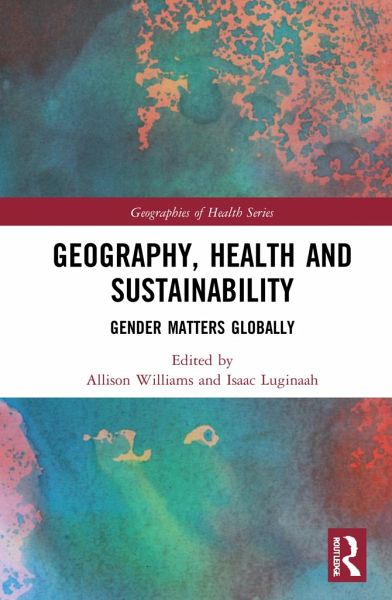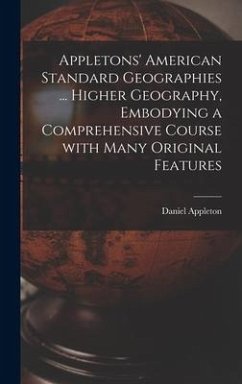
Geography, Health and Sustainability
Gender Matters Globally
Herausgeber: Williams, Allison; Luginaah, Isaac
Versandkostenfrei!
Versandfertig in 1-2 Wochen
167,99 €
inkl. MwSt.
Weitere Ausgaben:

PAYBACK Punkte
84 °P sammeln!
With a global commitment to achieve gender equality by 2030, the SDGs present a historic opportunity to place gender as central to human progress across the globe. Gender equality, which requires the empowerment of all women and girls, is an explicit goal, in addition to being a fundamental prerequisite to and facilitator of most other SDGs. This edited collection provides a range of geographical and geospatial insights, from a variety of disciplinary and country-specific perspectives, to better understand gender and sustainable development. In addition to several African countries, Mexico, Ja...
With a global commitment to achieve gender equality by 2030, the SDGs present a historic opportunity to place gender as central to human progress across the globe. Gender equality, which requires the empowerment of all women and girls, is an explicit goal, in addition to being a fundamental prerequisite to and facilitator of most other SDGs. This edited collection provides a range of geographical and geospatial insights, from a variety of disciplinary and country-specific perspectives, to better understand gender and sustainable development. In addition to several African countries, Mexico, Japan, Canada, USA, and Cambodia are featured. A range of topical case studies examine women's domestic and care work, including water collection, breastfeeding, food purchasing, and caring for elderly family members. Access to health care services is examined in the case of breast screening and antenatal care. Women's engagement in the labour force is also addressed, with a specific look at the renewable energy sector; structural barriers to employment are discussed across a number of chapters, with clear strategies to break through these barriers. Finally, theoretical insights are proposed in better understanding and engaging in gendered inequalities in health.




![Elements of Geography, Ancient and Modern [microform]: With an Atlas Cover Elements of Geography, Ancient and Modern [microform]: With an Atlas](https://bilder.buecher.de/produkte/65/65511/65511272n.jpg)



![Geography Made Easy [microform]: Being an Abridgement of the American Universal Geography; to Which Are Prefixed Elements of Geography, for the Use of Cover Geography Made Easy [microform]: Being an Abridgement of the American Universal Geography; to Which Are Prefixed Elements of Geography, for the Use of](https://bilder.buecher.de/produkte/65/65499/65499692n.jpg)
![A Practical System of Modern Geography, or, A View of the Present State of the World [microform]: Simplified and Adapted to the Capacity of Youth, Con Cover A Practical System of Modern Geography, or, A View of the Present State of the World [microform]: Simplified and Adapted to the Capacity of Youth, Con](https://bilder.buecher.de/produkte/65/65494/65494711n.jpg)

![An Atlas of Classical Geography, Containing Twenty-four Maps [cartographic Material] Cover An Atlas of Classical Geography, Containing Twenty-four Maps [cartographic Material]](https://bilder.buecher.de/produkte/65/65512/65512761n.jpg)

![The World-wide Atlas of Modern Geography, Political and Physical, Containing One Hundred and Twenty-eight Plates and Complete Index [cartographic Material] Cover The World-wide Atlas of Modern Geography, Political and Physical, Containing One Hundred and Twenty-eight Plates and Complete Index [cartographic Material]](https://bilder.buecher.de/produkte/65/65522/65522474n.jpg)